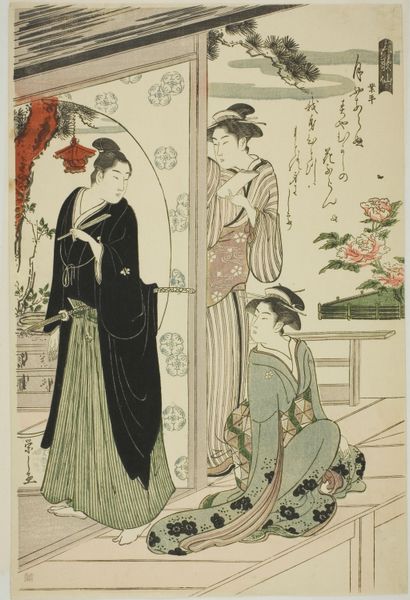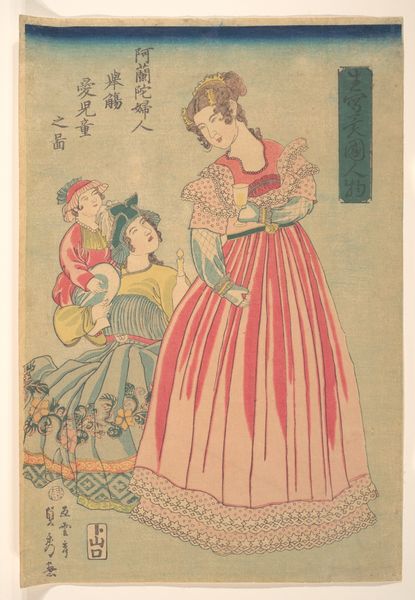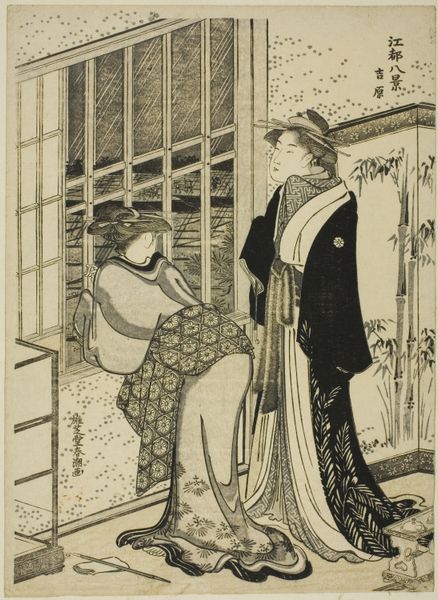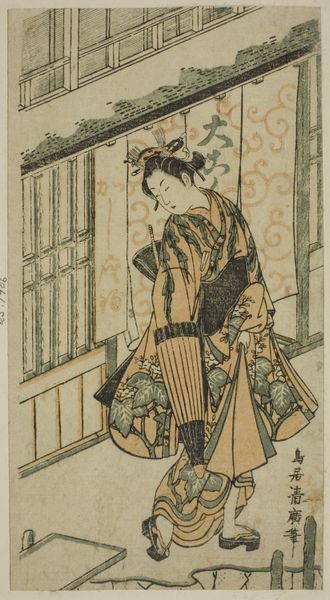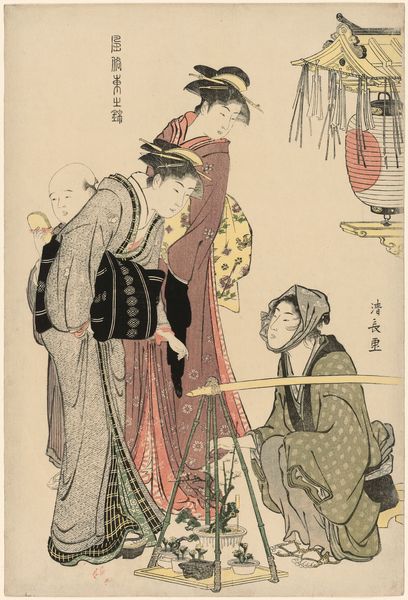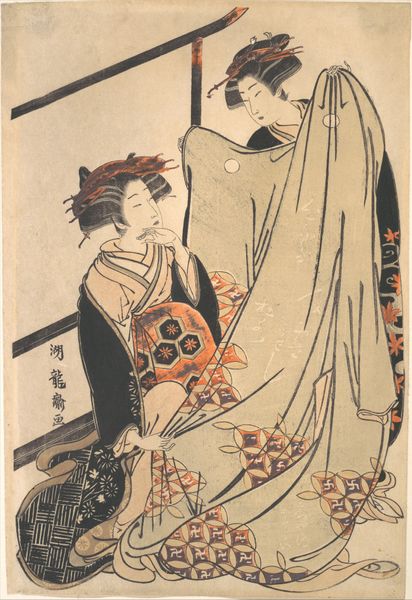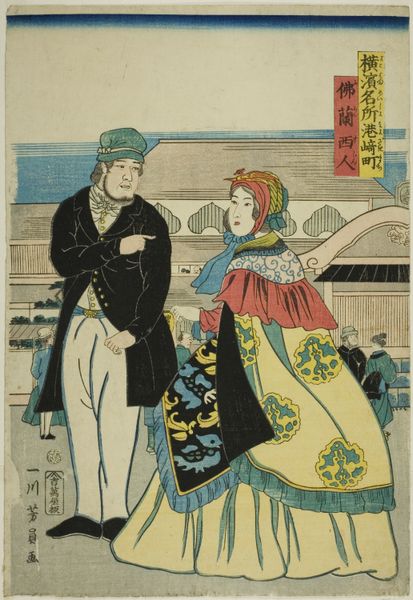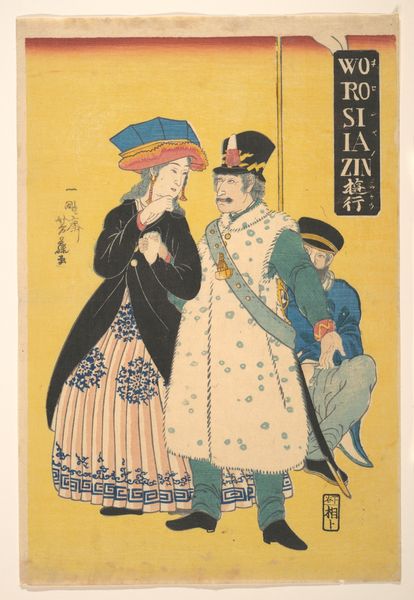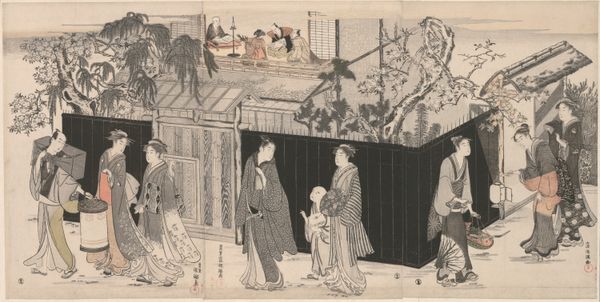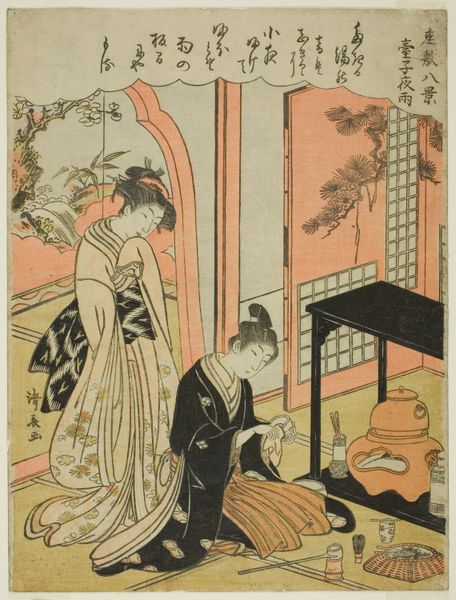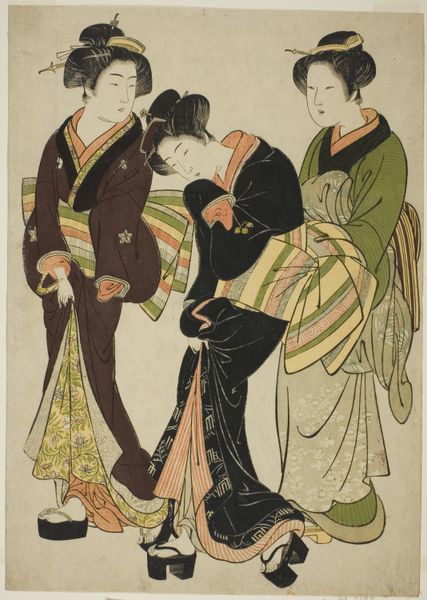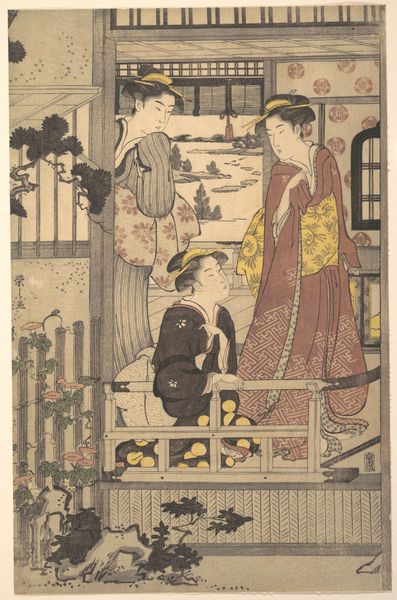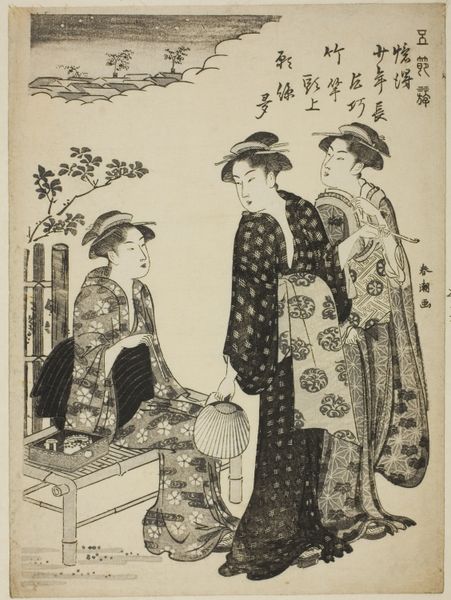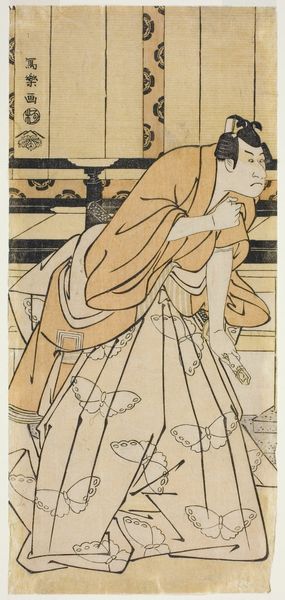
print, woodblock-print
#
portrait
# print
#
asian-art
#
ukiyo-e
#
japan
#
child
#
woodblock-print
#
genre-painting
Dimensions: 13 1/2 x 9 in. (34.3 x 22.9 cm)
Copyright: Public Domain
Editor: This woodblock print from 1860, titled *A Foreigner Enjoying Her Children*, is by Utagawa Yoshikazu. It depicts a Western woman with her children in what I presume is a Japanese setting. There’s a mix of domesticity and this strange exoticism to it. What do you make of this depiction? Curator: Well, this print offers a fascinating glimpse into 19th-century Japanese perceptions of the West and its inhabitants. Think about it – what narrative does this image construct around “the foreigner”? Editor: I see the mother as the central figure, but the print title suggests she's a foreigner. The other figures seem like supporting actors in her story. Is that part of the artist's intent, do you think, portraying a life different from their own? Curator: Precisely. The “enjoying her children” element frames the Western woman within a specific context, perhaps suggesting a commentary on Western family life through a Japanese lens. How does this portrayal differ from how Japanese women and children might have been depicted at the time? Editor: That's interesting. The woman is wearing what looks like Western clothing, and she has fair skin and hair. I suppose those details were seen as novel or exotic to the Japanese audience. It could suggest certain privilege as well as how racial bias might influence their art style. Curator: Absolutely. And let's also think about who this print was made for and what purpose it served. Was it purely for entertainment, or was it also meant to inform and even shape public opinion? Editor: I didn't think about that. So it's more than just a snapshot of a foreigner and her kids. It's a statement. I learned a lot from seeing it this way! Curator: Indeed. Art can unveil societal nuances and viewpoints during its creation and long after, shaping and shifting narratives across generations.
Comments
No comments
Be the first to comment and join the conversation on the ultimate creative platform.
